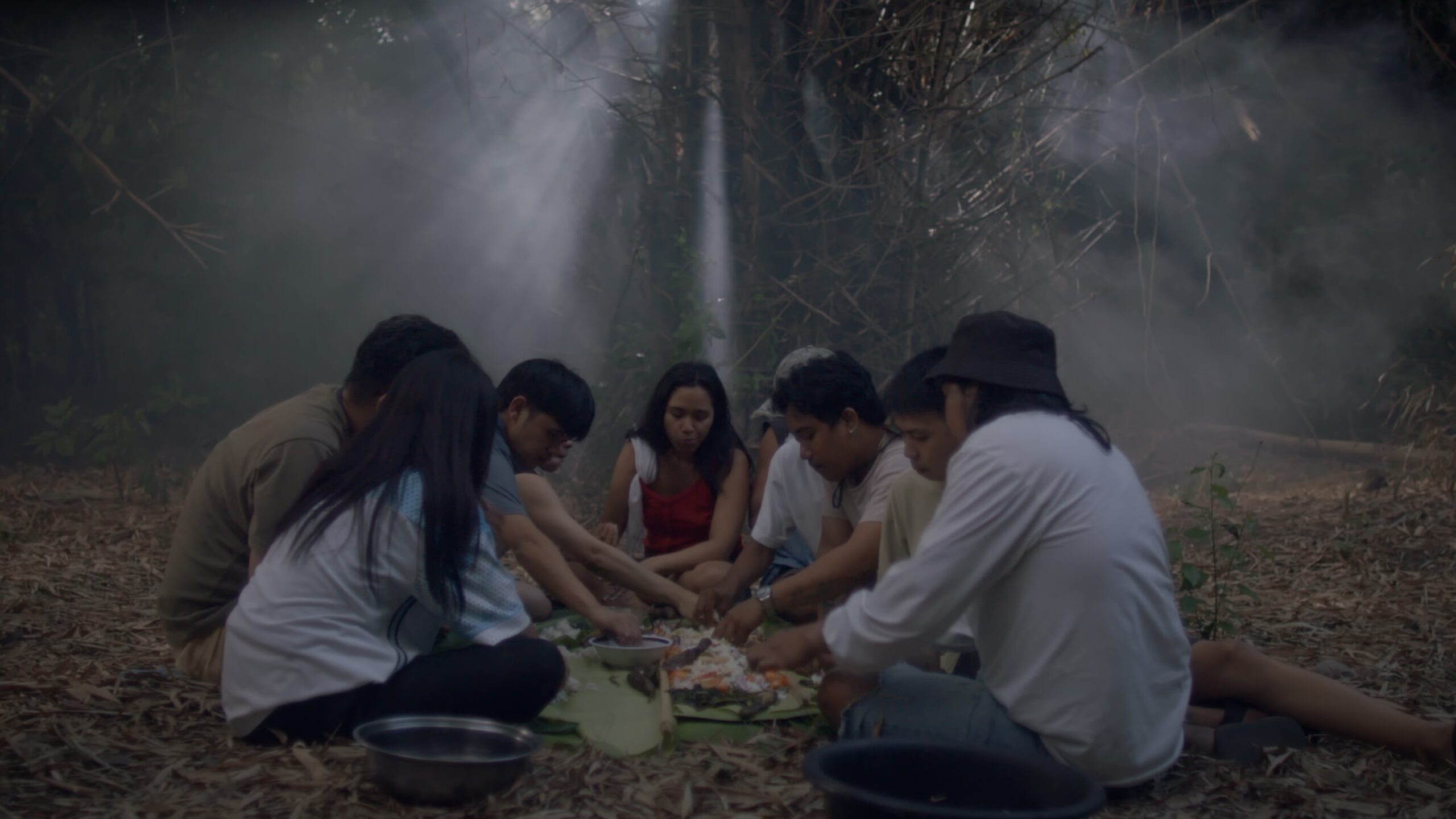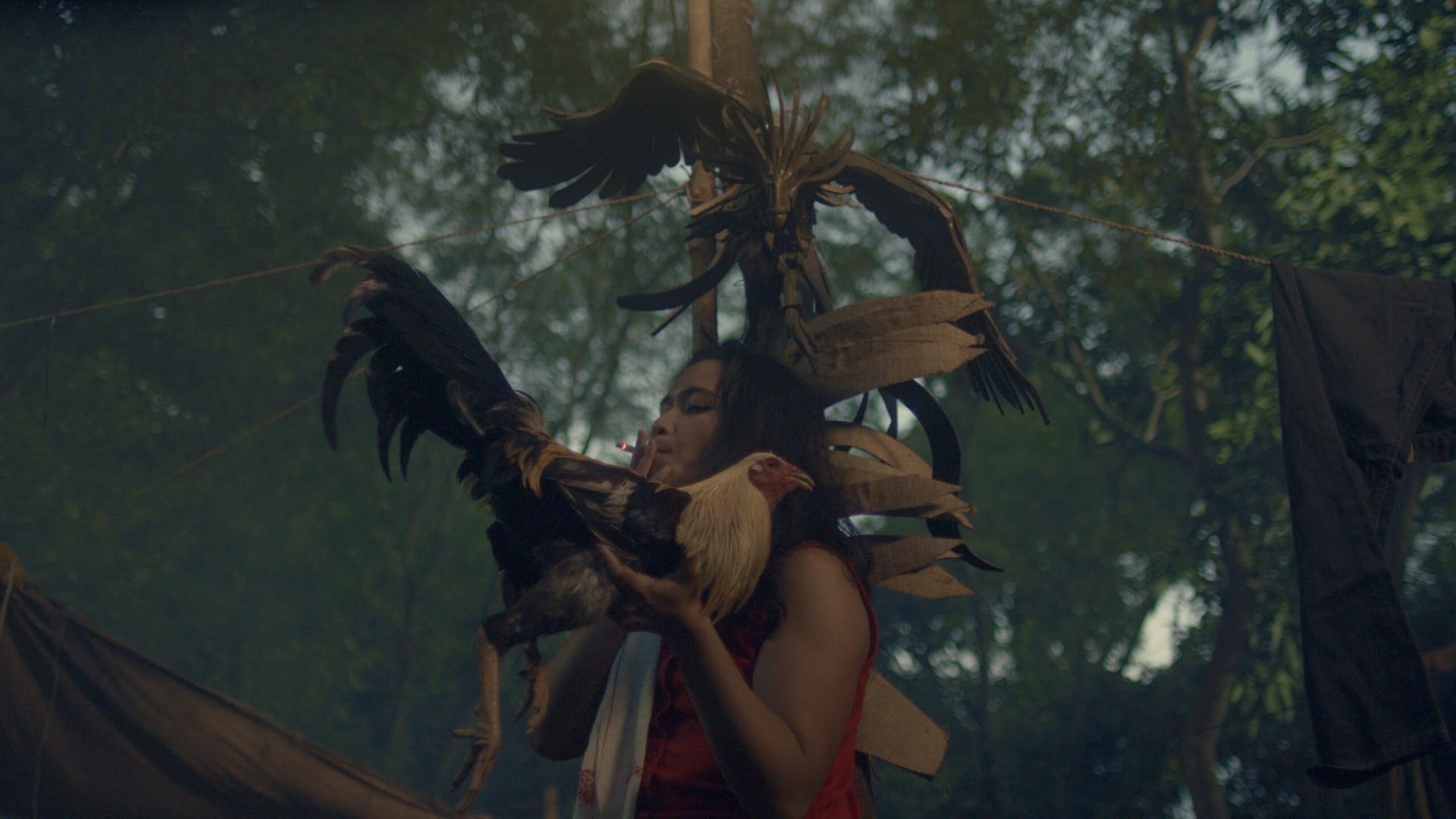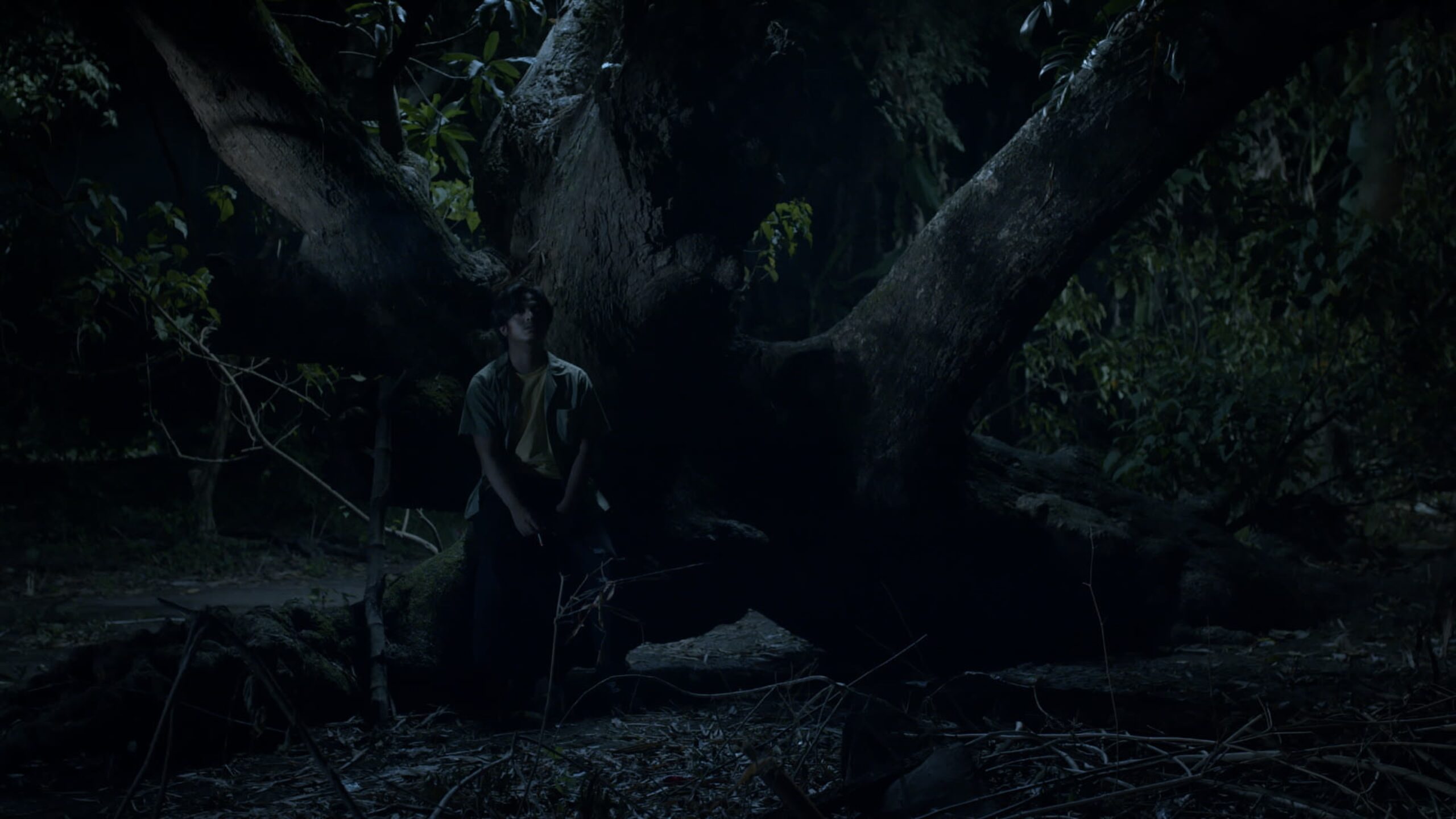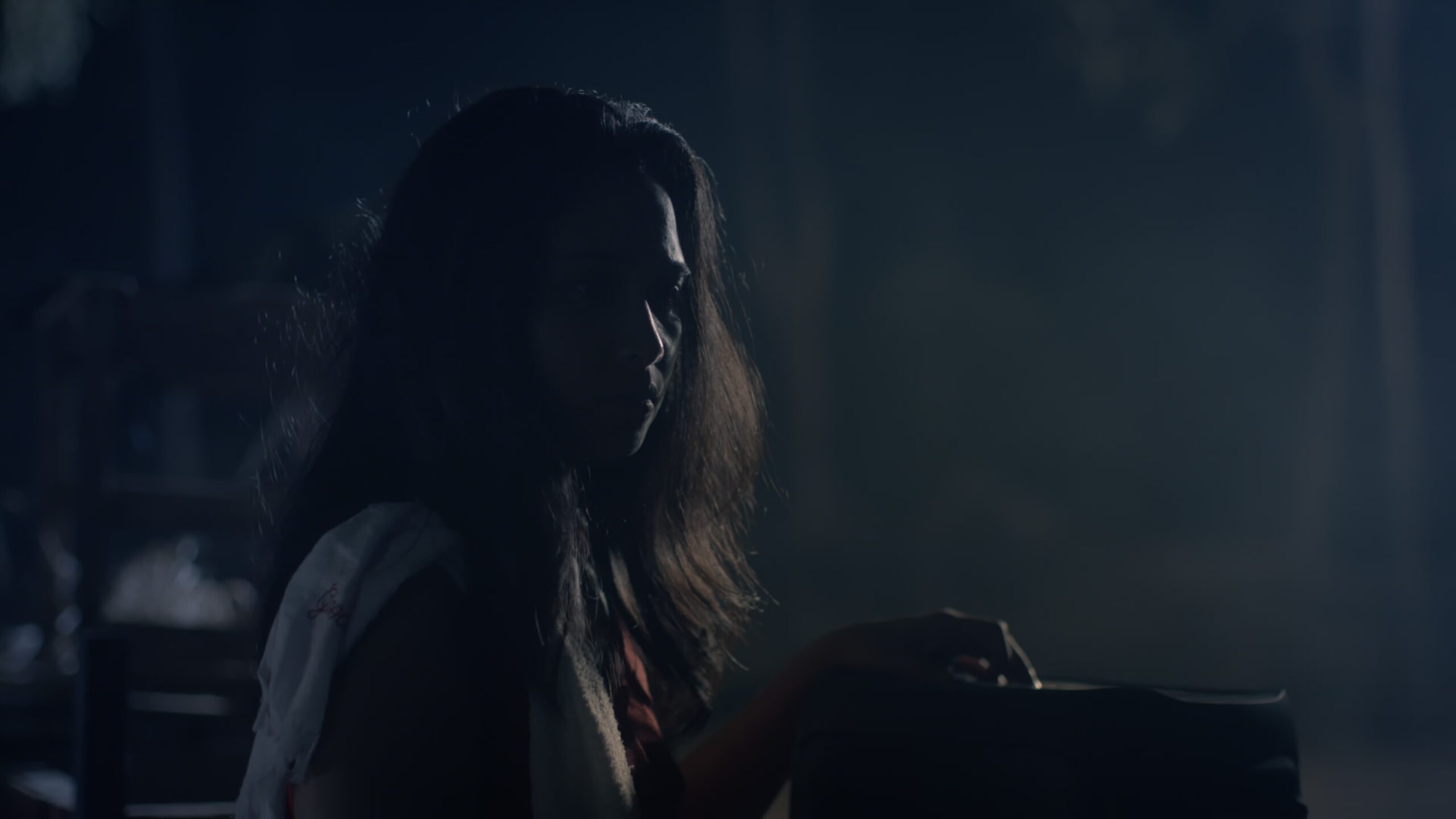SUMMARY
This is AI generated summarization, which may have errors. For context, always refer to the full article.

Arvin Belarmino was at the inaugural edition of the Ho Chih Minh City International Film Festival when they received the news that their short film Radikals got into Cannes Critics Week. Belarmino had dreamed of having a film premiere at Critics Week since seeing Julia Ducornau’s rip-roaring coming-of-age cannibal debut Raw and had made it a point to see all that was available from the section every year since.
But in the seven years he submitted his shorts, all he received were rejection letters. So when he and his producer Kristine de Leon were informed they had gotten in as the only Southeast Asian film in a lineup of 13 shorts, Belarmino’s emotions hit so hard that his knees gave out. Tearing up while sitting on a curb in Vietnam, surrounded by his joyful Filipino peers, Belarmino felt overwhelmed, as if he finally made it.
Belarmino now becomes a rare kind of filmmaker with three projects at Cannes in the same year. It’s a miracle considering that nine years ago, Belarmino hadn’t even planned on pursuing film as a career.
Born in Masbate but raised in Manila, Belarmino was taking up information technology at De La Salle University-Dasmariñas, enduring hour-long commutes from Quiapo to Cavite and back. In his third year of college, while his peers became obsessed with DOTA, he chanced upon a small art collective near his school – Lirio Salvador’s Espasyo. While he initially went for the drinks and conversations, he slowly began staying for the screenings, collecting links to websites and DVDs of what to watch next. Absorbed into the experimental art scene, it wasn’t long before Belarmino took his 10 megapixel digicam and began to shoot on his own, editing the footage in Moviemaker. Espasyo became his informal film school and Belarmino’s hobby quickly became a dream.
Fast forward to a few years later: Belarmino’s friend, cinematographer and editor Dan Masinsin, convinced him to trim a 40-minute film into a shorter version that could be submitted to Cinemalaya, becoming what would eventually be Belarmino’s debut short Kyel. The acceptance into the festival ushered Belarmino into a world of filmmaking he never knew and became the push that encourages him to become more than a hobbyist.
Belarmino left his well-paying IT job to work for a production house as a production assistant, slowly rising through the ranks to learn about the filmmaking process organically. “I was lucky because the head really pushed us to write our own films as part of our growth.” The space provided Belarmino with creative freedom while doing advertising work, allowing him to direct at least four shorts centered around Manila, one of which earned him a Gawad Urian in 2017. Though the production house disappeared due to the pandemic, the momentum it helped build continued long after.
The concept for Radikals was born in 2023 at a drinking session when Belarmino’s Caviteño peers casually confronted him with a question. “They asked me: ‘Arvin, have you made a film about Cavite?’” said Belarmino, recounting the evening. Up until that point, his films had depicted the grime and underbelly of Manila, partly because of his upbringing in Quiapo and his early experiences witnessing and experiencing the dynamics in slum areas. But had he made something in Cavite, the place that introduced him to filmmaking? The question gnawed at him until he could no longer bear it.

Belarmino began thinking of the perfect Cavite film, looking into heroic figures from Cavite’s past, giving up on the idea of a period film because “it would’ve been too expensive.” While doing his research, a memory surfaced: In freshman year of college, Belarmino was invited to a fiesta in Dasmariñas where people in farmer’s costumes danced to a rock and roll song. Crowded around the open space, they formed dance cyphers and incorporated movements from farming into their freestyle. Only later on in the evening was he given a name to what he was seeing – bakte or a type of dance performed only by people from Cavite as a form of celebration during harvest that became its own entity as the area became urbanized. “Every week, there’d be a competition here in Cavite – in Dasma, in Imus – and it was exciting because the people who’d join were exhausted from a week’s worth of work but used the dance to light up their own existence,” said Belarmino. Though not a craze outside of the locality in the way that Davao’s budots became a nationwide trend, bakte was large enough in Cavite to shut down basketball courts and turn them into dance floors.
In August 2023, shortly after the drinking session, Belarmino pitched the idea to his writing partner Kyla Romero, whom he had met after watching a play she had written in 2017 and with whom he has worked on several short films including 2023 Cinemalaya Audience Award-winner Hinakdal. Met with her confusion around the concept, Belarmino took the month to work on the treatment for Radikals, only writing script with Romero in September. “I was so nervous because I had no idea how I was going to pitch this,” said Belarmino. He said that it was through Romero’s partnership that the absurdity of the concept became grounded and structured.

De Leon boarded Radikals as lead producer shortly after. Belarmino met De Leon in 2022 after Ria, his upcoming feature about Filipino punks battling the demolition of their homes, got into Cinefondacion. Belarmino was searching for a producer who was new and who could learn the ropes along with him. His friend, filmmaker Arjanmar Rebeta, recommended De Leon after she served as his producer and assistant director for several shorts. “Kristine was so shocked that I wanted to get her for the Cinefondacion project that she hung up on me,” Belarmino said with a laugh, in hindsight. In a leap of faith, De Leon resigned from the Film Development Council of the Philippines (FDCP) shortly after and committed to producing instead.
With De Leon and Romero at his side, Belarmino began pitching Radikals to more friends and co-producers, including local production company WAF Studios. Within three to four months since it was conceptualized, Radikals went from a product of a drunken conversation to an international co-production between the Philippines, France, the US, and Bangladesh. “The elevator pitch was a mix of absurdism and realism, so they had an idea that I wasn’t adhering to any narrative conventions,” said Belarmino.
It helped that Belarmino and De Leon had gotten into some of the world’s most prestigious labs thanks to Ria, functioning as a form of creative “insurance.” But because they hadn’t shot Ria yet, he presented producers with a slate of films that conveyed the look and tone Radikals would later adopt, including Alex van Warmerdam’s Dutch home invasion film Borgman (2013). He punctuated these discussions by showing them videos of the bakte dance on Youtube and emphasized how his films centered subcultures often left out of national conversations and international eyes. “What attracted them was really the worldbuilding and how it was so new to them.”

They held an open call for Radikals and landed three actors: Elora Espana, Timothy Castillo, and Ross Pesigan.
“I was so happy because they were so willing and open to immerse in the bakte [culture] because it was very clear to me early on, even non-negotiable for me, to get the bakte dancers,” said Belarmino. “It was great to see how the non-actors and the actors taught each other how to act and how to dance the bakte. It’s really the beauty of filmmaking: learning something new. It’s the reason why I do this.”
During the wrap party, Belarmino invited the cast, crew, and the bakte dancers to Gener Cafe and they briefly turned its nearby street into a freestyle dance floor.
Pre-production for Radikals began just as Belarmino was accepted in the Director’s Factory – a program under Cannes’ Director’s Fornight that mentors emerging filmmakers, funds four short films to be created in pairs, and provides them opportunities to pitch their features in development at Cannes – and post-production concluded just as shooting for it was about to begin.
Radikals, along with Hinakdal and the co-directed short Silig, mark a shift in Belarmino’s filmmaking – away from the dark, cynical, and relentlessly cruel neorealist portraits of imperial Manila in Nakaw, Kadena, The Gathering, and Tarang, and towards larger tapestries of humanity where social realities are wrapped in layers of metaphor, absurdity, and even comedy. In many ways, Radikals is a return to the roots he laid out in his debut Kyel, not only with its experimentations in form and structure but with the way he now uses cinema to put the milieu of his childhood and young adulthood under examination.

Early experiences witnessing and experiencing hardship may, in part, explain why family and survival have been central to Belarmino’s oeuvre and Radikals continues this cinematic preoccupation. Though there’s a strangeness and comicality to bakte as a dance and a social ritual, its origins date back to pre-Hispanic times, with its existence and proliferation paralleling the growth and development of the community, especially in Imus. In a 2019 study by Ana Marie G. Ricafort and Ma. Theresa M. King, the two Cavite-based researchers describe bakte “as a dance for survival” that “caters [to] unity and harmony” and is “able to feel the inner self.” Through bakte dance competitions, the youth, especially those from farming communities and those who are drug dependents, are able to form and shape a positive social identity.
“You can see it in their eyes that they enjoy it but that it’s also so serious for them. They’re so passionate about it [that] I consider them artists,” said Belarmino. “It enforced the statement I want to make with Radikals: So many are afraid to take risks, but here are these bakte dancers who don’t care. They just want to dance. And if you don’t have that bravery and honesty, you’ll be swallowed alive and left behind, or worse, someone else will do it and take it away from you.” – Rappler.com
Arvin Belarmino’s “Radikals’”will screen on May 21 at the The Miramar Theater and May 24 at Cinéma Les Visiteurs du Soir as part of La Semaine de la Critique at Cannes 2024. His other short, “Silig,” co-directed by Cambodian filmmaker Lomorpich Rithy, will premiere at Cannes Directors’ Fortnight as part of the Director’s Factory initiative. This interview has been translated from Filipino and edited for brevity and clarity by the writer.
Add a comment
How does this make you feel?
There are no comments yet. Add your comment to start the conversation.